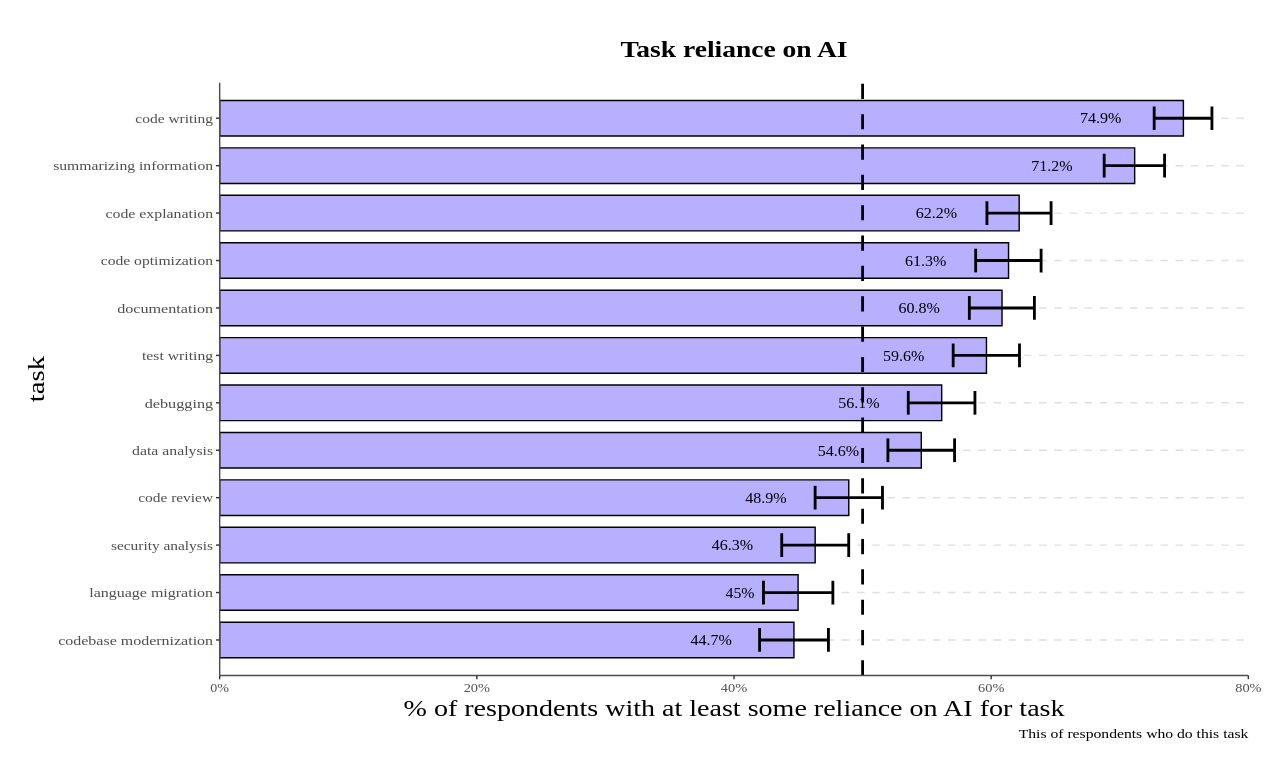DORA Report 2024: How AI is changing software development
AI: benefits, challenges and building trust
The widespread adoption of AI is changing the practice of software development. More than 75 per cent of respondents said they rely on AI for at least one dailyprofessional task. The most common use cases include writing code, summarising information and explaining code.

Proportion of respondents who use AI for their tasks
A 25% increase in AI adoption is associated with improvements in several key areas:
- 7,5% increase in documentation quality
- 3,4% increase in code quality
- 3,1% increase in code review speed
However, despite the potential benefits of AI, the research also revealed a critical finding: The use of AI can have a negative impact on software development performance. The increasing use of AI was associated with an estimated 1.5% decrease in delivery throughput and an estimated 7.2% decrease indelivery stability. The data suggests that an improvement in the development process does not automatically lead to an improvement in software delivery – at least not if the fundamentals for successful software delivery, such as small batch sizes and robust testing mechanisms, are not adhered to. AI has a positiveimpact on many important individual and organisational factors that create the conditions for high performance in software delivery. But AI does not appear to be a panacea.
The research also shows that despite the productivity gains, 39% of respondents said they had little to no confidence in AI-generated code. This unexpectedly low level of trust shows that the integration of AI needs to be handled with more care. Teams need to carefully evaluate the role of AI in their development workflow to minimise the drawbacks.
Based on these findings, the researchers have three key recommendations:
- Empower your employees and reduce workload by focusing your AI adoption strategies on empowering employees and relieving them of unwanted tasks.
- Establish clear guidelines for the use of AI, address procedural concerns and encourage open communication about its impact.
- Encourage continuous exploration of AI tools and provides time for experimentation. Promote trust through hands-on experience.

